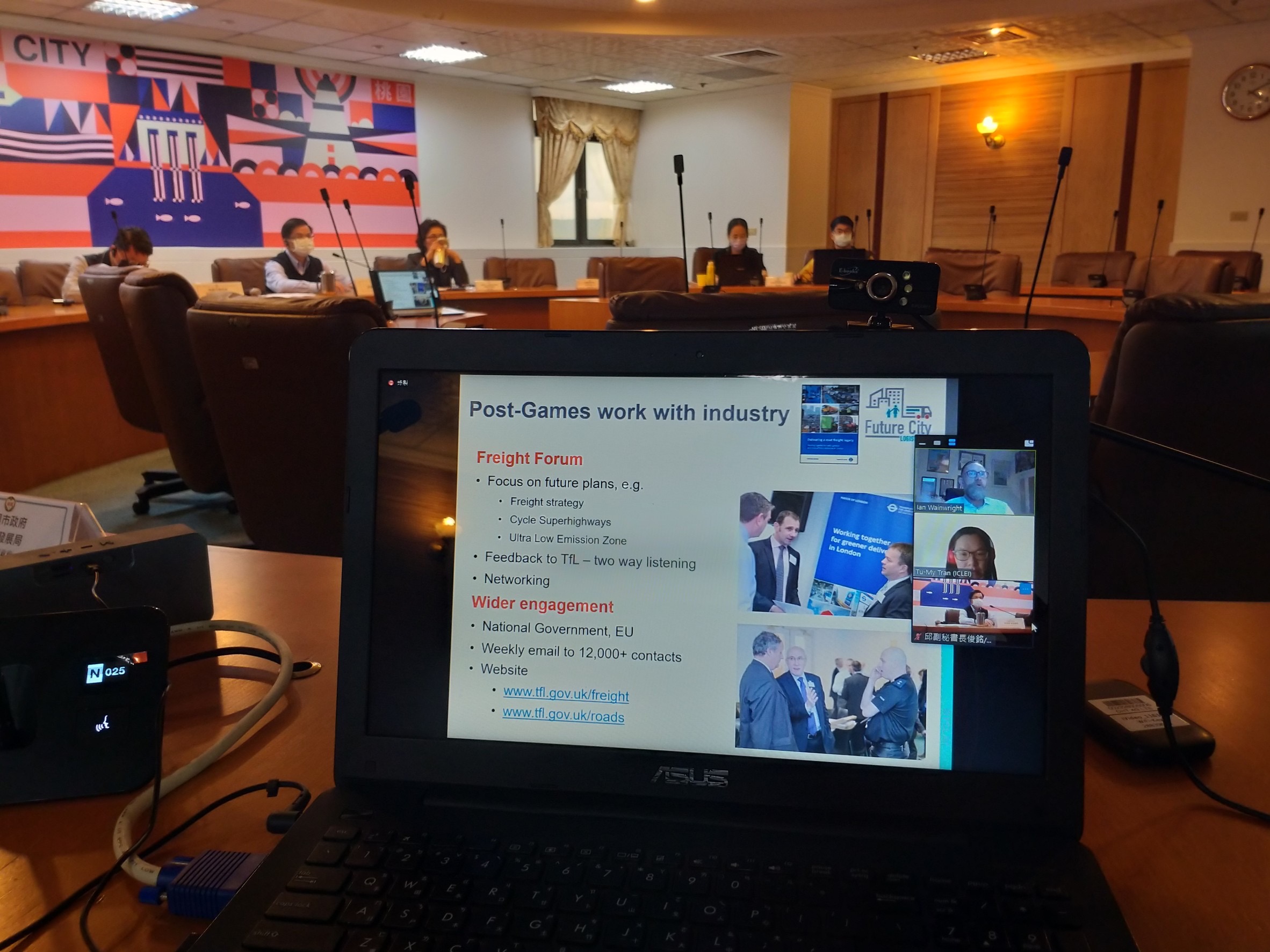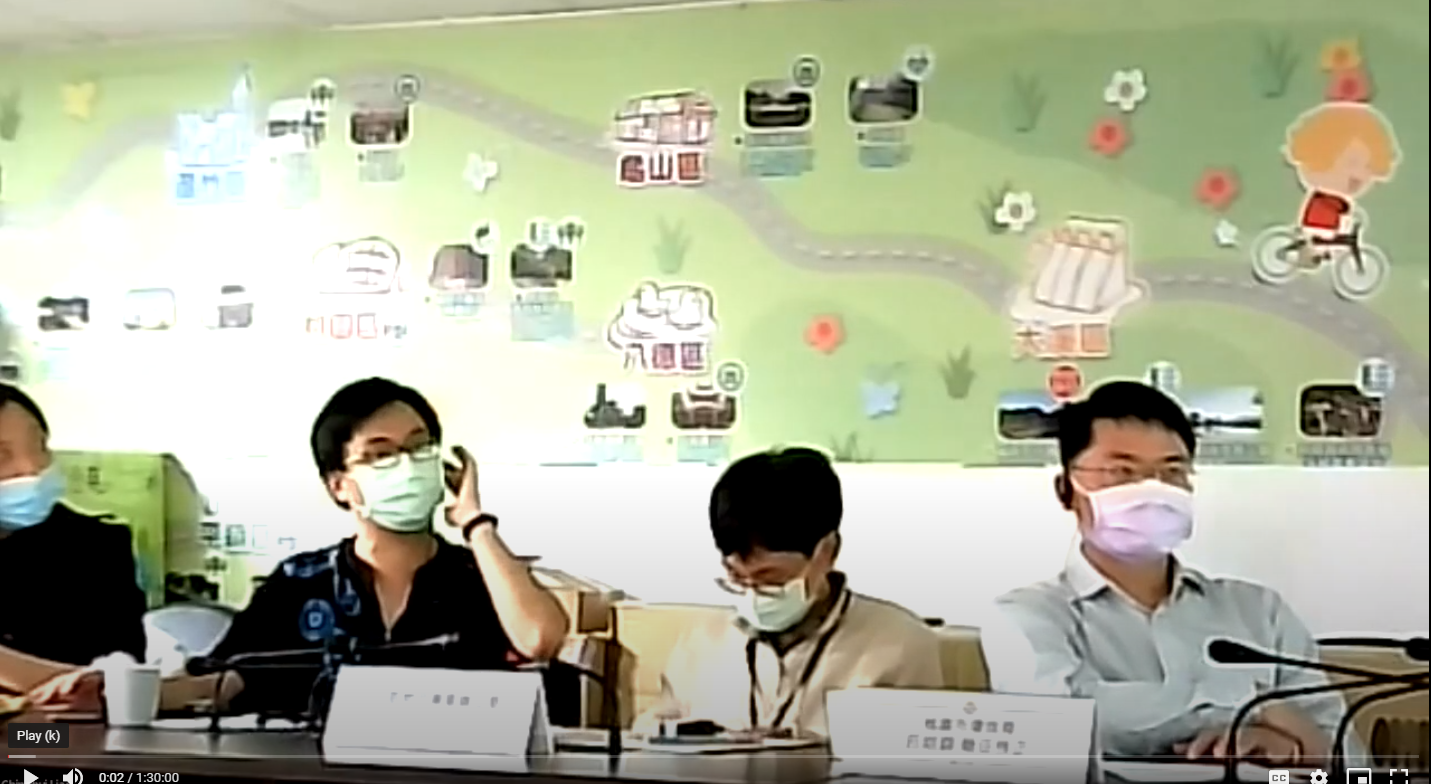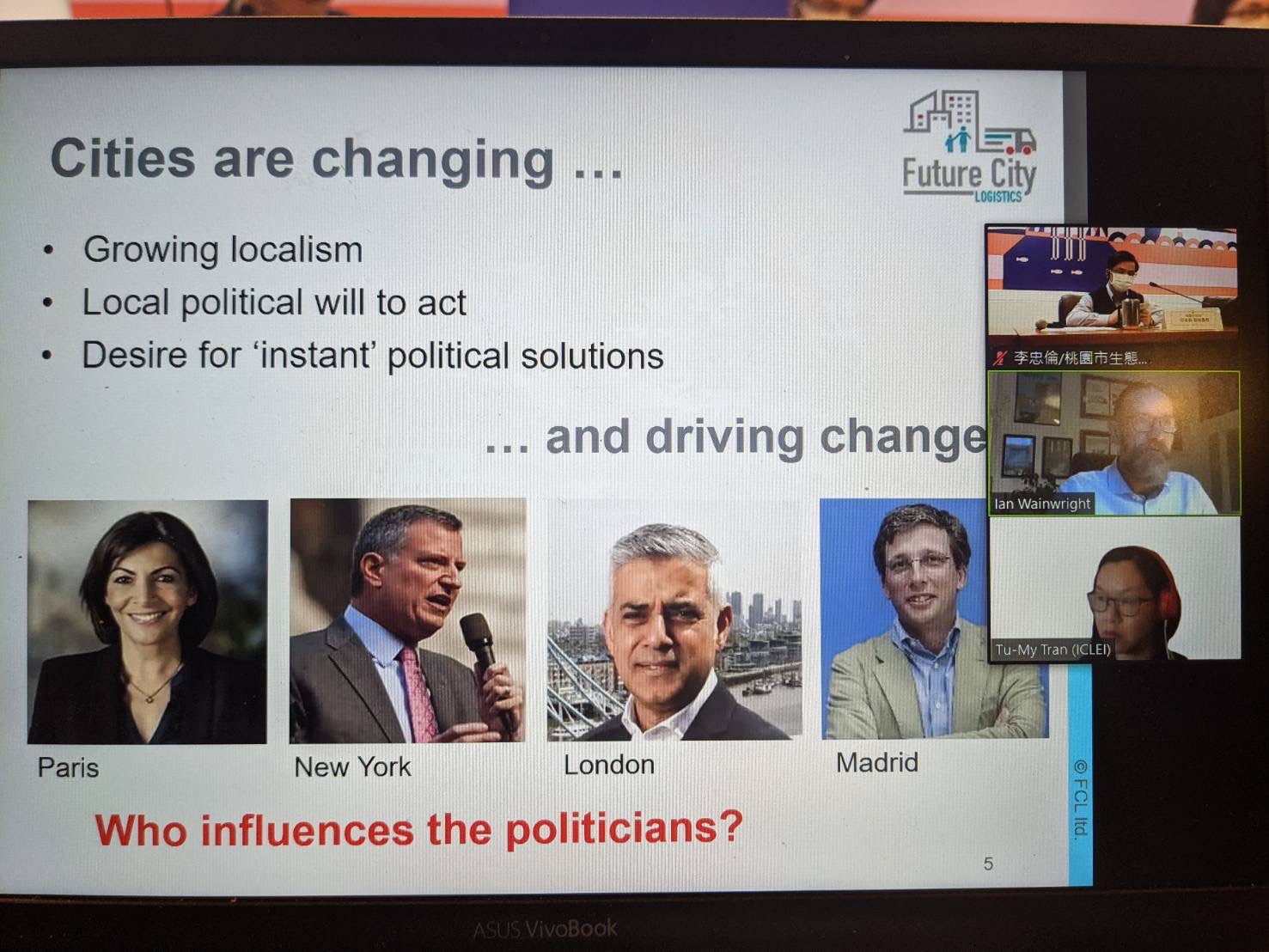As the Chair of the EcoLogistics Community, Taoyuan City promotes EcoLogistics initiatives in parallel with establishing demonstration projects in the city, which is known for being the center of the island’s logistics industry. In preparation for a fruitful year ahead with a showcase of demonstration projects and establishment of its Sustainable Urban Logistics Plan (SULP), Taoyuan City’s EcoLogistics office will be undergoing a series of capacity-building workshops and trainings. The goals of these training programs are to provide guidance and share best practices for Taoyuan City’s upcoming SULP, and to address specific needs from the city. Attendees of the first trainings conducted through a two-part online webinar on January 21st and January 28th included Taoyuan City’s EcoLogistics office and representatives from public offices in national and local logistics-related departments.
Ian Wainwright, Founder of Future City Logistics, shared insights into sustainable urban logistics planning and provided an in-depth case study on London’s freight plan. London is known for being a pioneer in implementing strict access restrictions such as its Ultra Low Emission Zone (ULEZ) to tackle air pollution and congestion. It is also a pioneer in urban freight planning. In 2019, Transport of London (TfL) unveiled the Mayor’s Freight and Servicing Action Plan, aiming for a 10% reduction in city center freight by 2026.
Motivation is key in doing anything. Ian highlighted some of the key issues that motivated London in its focus on freight issues: urban freight has high safety and air quality impact on cities, and is a major contributor to air pollution. In the United Kingdom, trucks account for 18% of greenhouse gas emissions and 13% nitrogen oxide emissions. In London, road transport accounts for 24% of carbon dioxide emissions and 33% of nitrogen oxide emissions. Not only does freight impact air pollution, but it also impacts safety. Between 2016 and 2018, 70% of cycling fatalities involved trucks. Congestion is also an issue in a city with over 9 million inhabitants and a growing e-commerce sector. Hence, the city needed to set out strategies to address these challenges related to the freight industry. Key actions from the Mayor’s Freight and Servicing Action Plan include working with boroughs to better coordinate the control of freight movements in which the presenter emphasizes the importance of stakeholder engagements in successful sustainable urban logistics planning.
The training workshops conducted in January included the following topics:
- Introduction on urban logistics and its impact on cities
- Development and implementation of SULP –process, key elements, and guidance
- In-depth detail of London’s Freight Plan
- Best practices from Stockholm, Paris, Seattle, and New York
- Stakeholder Engagement – Who are they and how to collaborate between stakeholders
- Data collection and analysis for urban logistics – Barriers for collecting data, what needs to be collected, what’s available, approaches in collecting data, and data transparency
- Success factors – how to measure the effectiveness of strategies
Following the presentation was a Q&A session from the attendees where further questions on London’s development, stakeholder engagement, and data collection were discussed.
Some of the key takeaways from this training included:
- It is essential to take an integrated approach using the Avoid-Shift-Improve model from the bottom-up in assessing urban freight strategies. The focus is to minimize road freight trips first and if trips can’t be avoided, then match the demand to network and mitigate the impact.
- Urban freight planning takes political will and a clear vision
- Stakeholder engagement is not optional. It is a critical part of the SULP process with many parties involved. Identify stakeholders early in the process and collaborate with them in identifying a shared vision and goals for sustainable urban freight. Stakeholder engagement is an ongoing process.
- There is not a single solution to this complex topic. The city needs to be proactive in conducting pilot projects and learn from failures.
- Data is not as easily accessible as in passenger mobility and there is a lack of freight data sharing. Identify what data are available and what additional data is needed by comparing it to the outcomes the SULP seeks to change.
Learn more about the EcoLogistics Community here.





